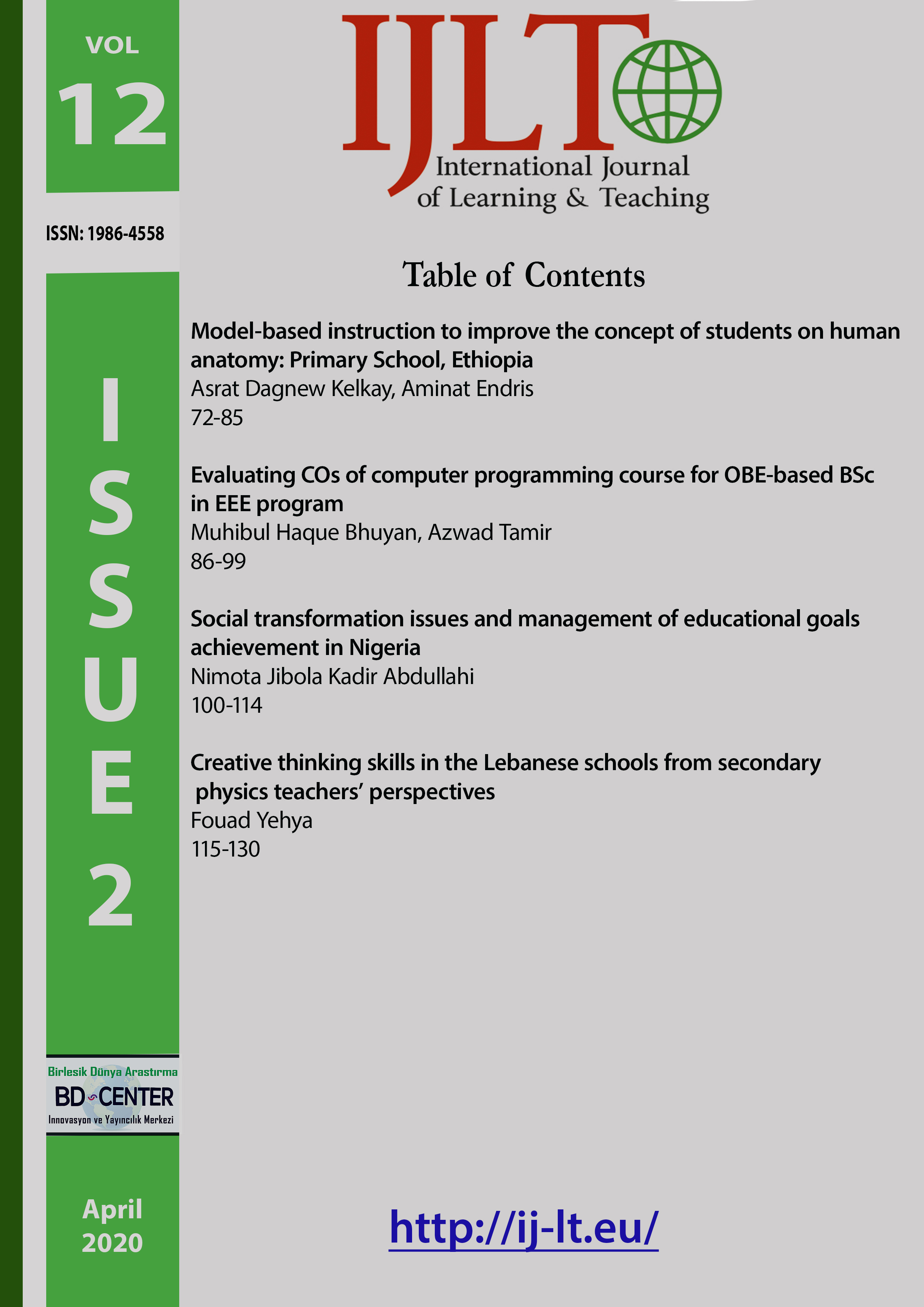
International Journal of Learning and Teaching
Yazarlar: ["Daniel Arkoh Fenyi", "Georgina Afeafa Sapaty"]
Konular:-
DOI:10.18844/ijlt.v14i4.7064
Anahtar Kelimeler:-
Özet: Abstract A holistic curriculum or education seeks to develop all three domains of learning: cognitive, psychomotor and affective. While the cognitive domain focuses on the mental and psychological fortitude of learners, the psychomotor focuses on the use and development of muscular or motor skills and the affective domain deals with the feelings, emotions and attitudes of students. Interestingly, not all these domains are sufficiently written or documented as guidelines or curricula for classroom practice. It is for such reasons that the ‘hidden’ curriculum becomes needful, as it not only complements the official curriculum but plays a significant role in shaping the values of learners. This qualitative study engages 52 language students in a college of education in Ghana to reveal their views on their experiences with the ‘hidden’ curriculum. Questionnaires and semi-structured interviews were the data collection instruments. The inductive content analysis technique is used to analyse the collected data. The outcome of the study reveals that gender and sexuality, religion, politics, hard work and confidence are values ‘taught’ through the hidden curriculum. The findings of the study create awareness, especially for teachers that, beyond ‘what’ they teach in the classroom, ‘how’ they teach also unconsciously transmits lessons. This means that teachers should be mindful of how they dress, walk, talk and behave in the classroom since all these virtues contribute to the overall teaching and learning process. Keywords: Curriculum, cognitive skills, psychomotor skills, affective skills, classroom practice;
Dergi editörleri editör girişini kullanarak sisteme giriş yapabilirler. Editör girişi için tıklayınız.